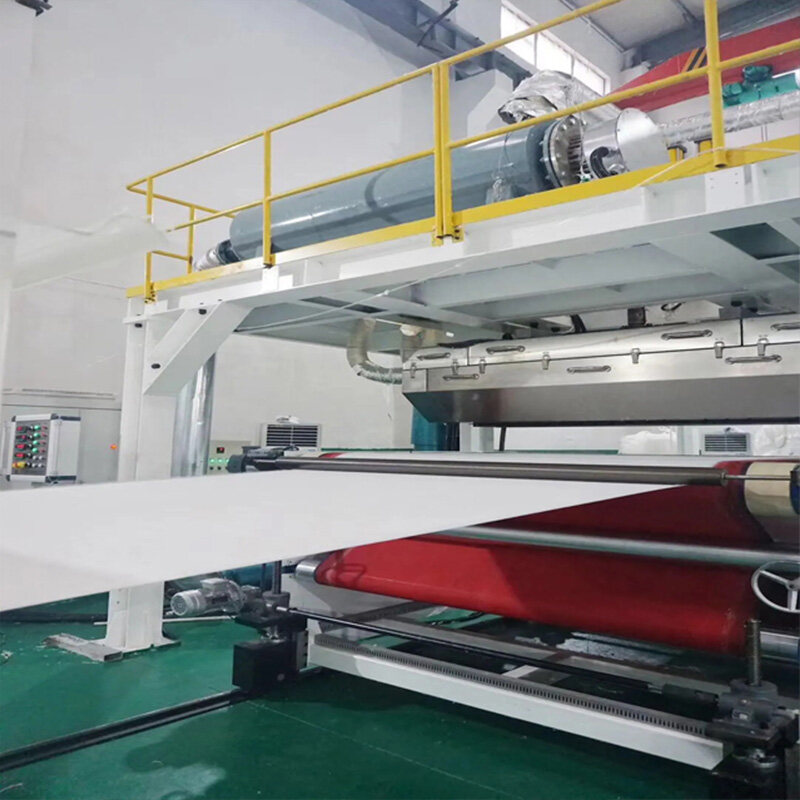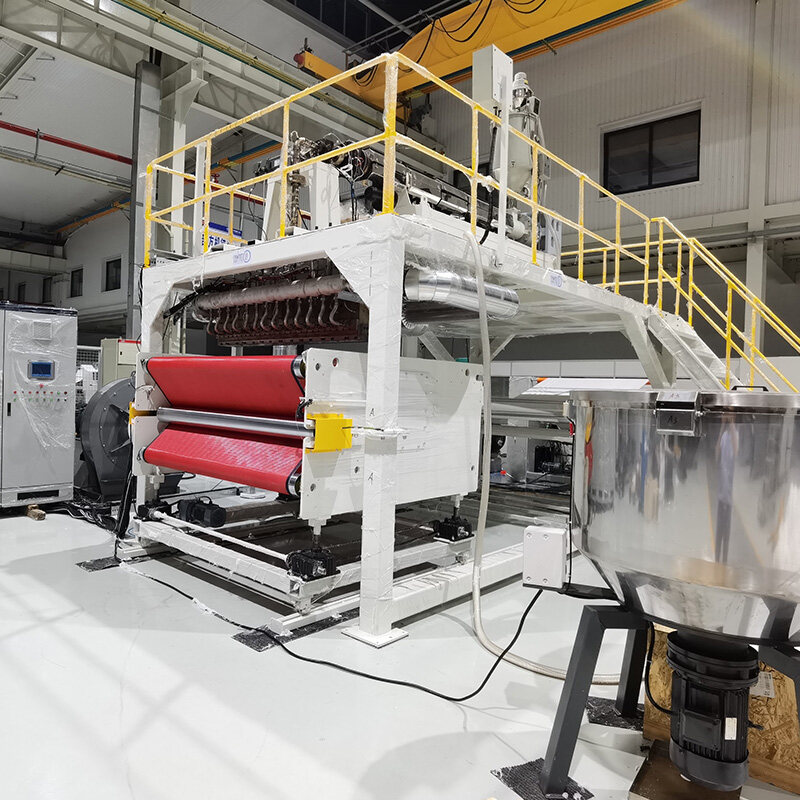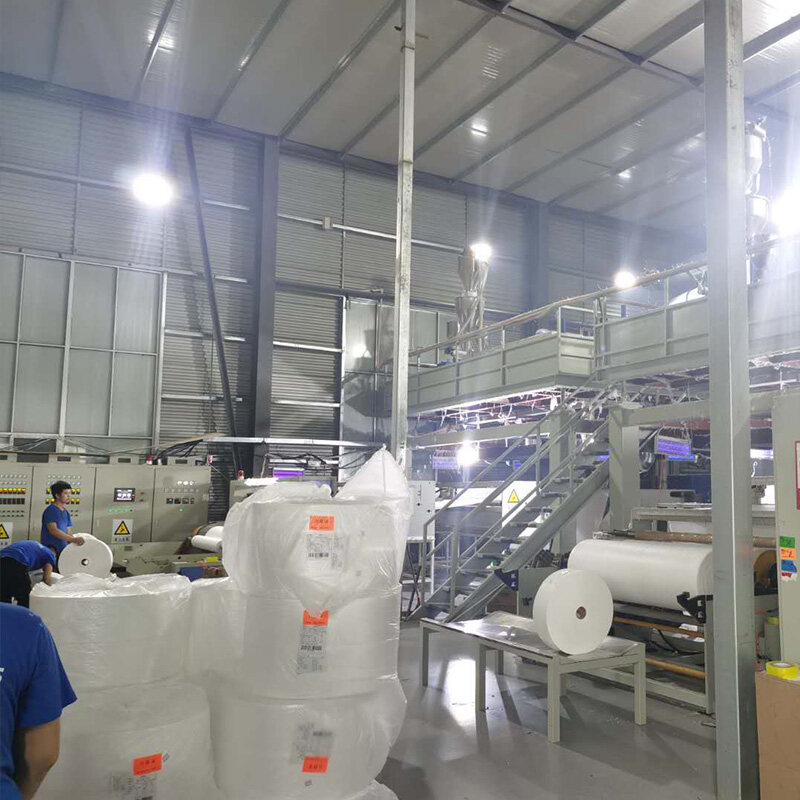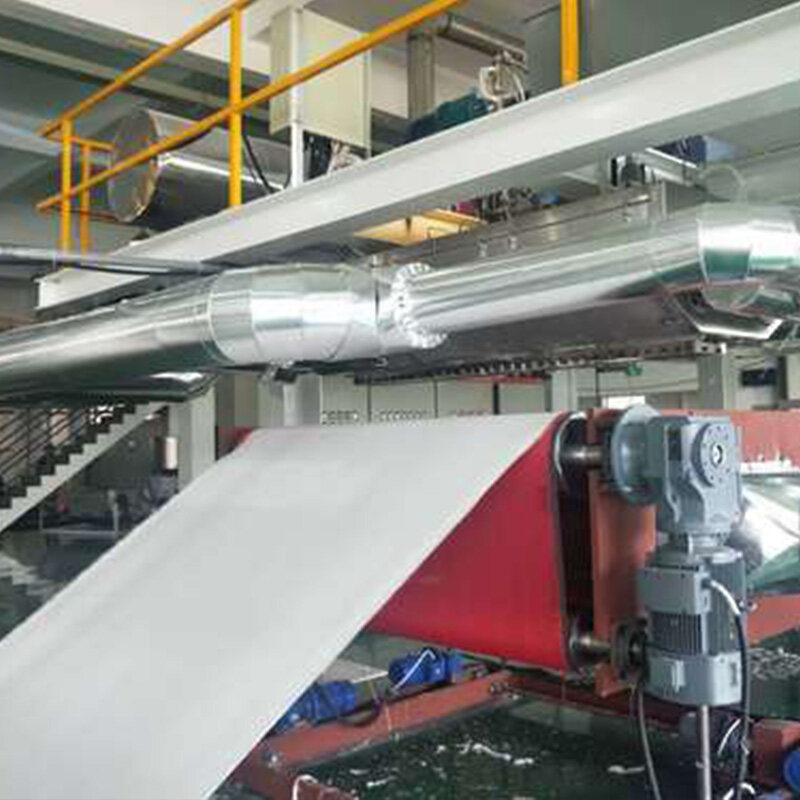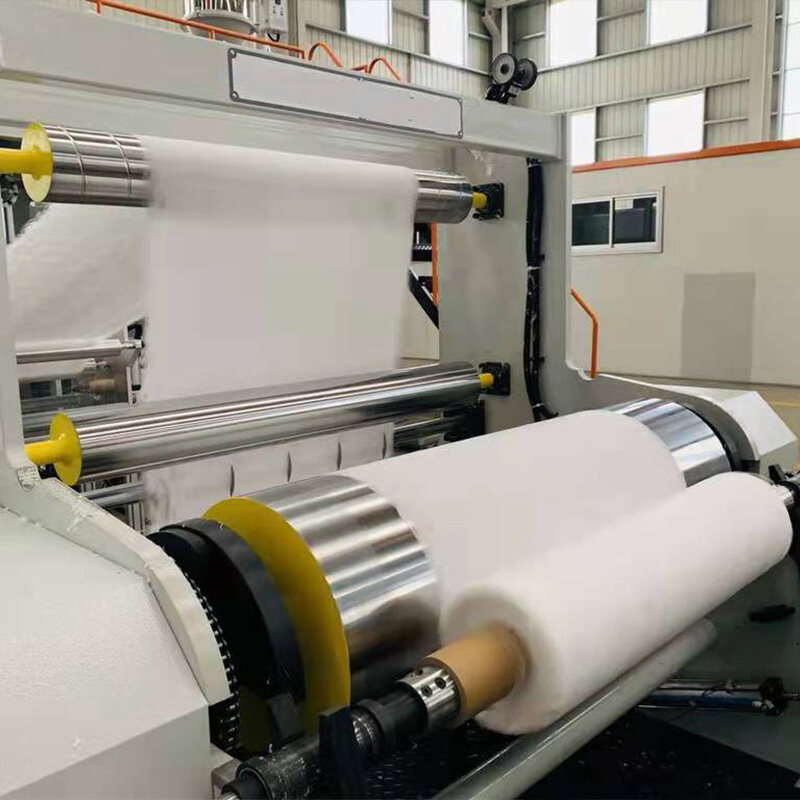Email format error
Email cannot be empty
Email already exists
6-20 characters(letters plus numbers only)
The password is inconsistent
Email format error
Email cannot be empty
Email does not exist
6-20 characters(letters plus numbers only)
The password is inconsistent

PET(PLA) Model
PET(PLA) Model
(10)PLA model 3200mm nonwoven fabric device
Polylactic acid fibres having a skin-core structure that can be carded into a nett and then set by hot air are used to create PLA non-woven fabrics. Heat transfer, flow, diffusion, and pressure cooling are the four primary processes that make up the bonding process during hot air setting.
1600mm PLA non-woven fabric machine
The primary use of PLA on the market is as extrusion-grade resin. Large supermarkets mostly utilize it for the packing of fresh fruits and vegetables. For example, this kind of packaging has grown to be a key component of the European market chain. Electronic product packaging frequently uses PLA Nonwoven. It has evolved into the main field of use for PLAs. It encourages energy efficiency, environmental protection, and safety. The high transparency, high gloss, high stiffness, and other benefits of PLA are also clearly visible. Additionally, the use of extrusion-grade resin in horticulture has started to draw attention. It has been used in areas including sandstorm prevention and slope greening.
2400mm PET type nonwoven equipment
High levels of automation and intelligence are present in the machine. When sewing, the upper and lower layers of the materials are always aligned, processing loss is minimal, and the finished product is more flat and stable thanks to the infrared automated edge alignment technology. With the use of the roller mold, which is simple to alter, customers can create a variety of flower patterns that are constantly changing and intricate discontinuous and symmetrical patterns.
PET model 3200mm nonwoven fabric device
Thin and medium-thick hot-rolled non-woven fabrics are the end products of the PET spunbond production process. They are mostly used for filter materials, lining fabric, home textiles, transfer printing, cable wrapping cloth, floor leather base cloth, automobile roof and carpet base cloth, beach chairs, tents, and other leisure products.
2400mm PLA type nonwoven equipment
When PLA is employed in the meltblown procedure, a market for nonwoven materials is created. It offers an accessible platform for innovation due to lower fibre sizes than other methods and the flexibility to integrate with other materials like laminated composites. When compared to petroleum-based polymers, the crystallisation kinetics of PLA nonwovens are different because of the processing conditions of greater pressure and extrusion temperatures within controlled process windows.
PET spunbond nonwoven machine
Numerous varieties of polyester nonwoven fabric are possible. such are spunbonded nonwoven, needle punched nonwoven, and polyester nonwoven that has been thermally bonded. PET (polyester) spunbond nonwoven's primary constituent is sliced polyester fiber. When making spunbond nonwoven fabrics out of polyester, some manufacturers also use recycled materials.
1600mm PET non-woven fabric machine
Water-repellent non-woven fabrics include those made of spunbonded filaments of polyester (PET). Depending on the gram weight, non-woven cloth has a varying water repellency. The better the water repellency, the heavier and thicker the gram weight. If there are any water drops on the non-woven fabric's surface, they will immediately fall off.
PLA spunbond nonwoven fabric making machine
Polylactic acid (PLA), an environmental protection substance, has undergone numerous transformations and applications in the non-woven fabric sector. It is extremely biodegradable. The microorganisms in the soil totally decompose it when it is thrown away, producing carbon dioxide and water. It actually "comes from nature and belongs to nature" and does not contaminate the environment.
PET spunbond nonwoven fabric making machine
PET nonwoven fabric is resistant to high temperatures and is water-repellent. Since polyester has a melting point of about 260°C, it can preserve the stability of the non-woven fabric's dimensions in a temperature-sensitive environment. It is frequently utilized in high-temperature resistant composite materials, transmission oil filtering, and heat transfer printing. JINXIN can offer you premium polyester non-woven textiles at competitive market rates as a professional non-woven polyester non-woven fabric supplier in China. Please get in touch with us if you want further details.
PLA spunbond nonwoven machine
Equipment made of spunbonded nonwoven fabric is a composite product of melt-blown and spunbonded materials. It benefits from strong strength, effective filtration, and lack of stickiness. It has been crucial in the development of industrial and medicinal filter materials.


